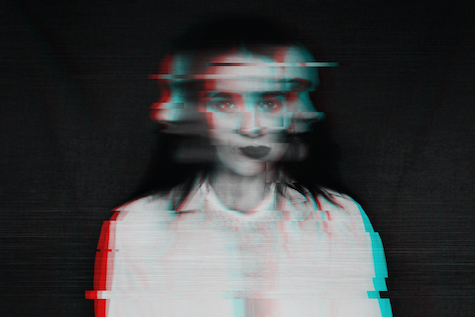Catherine has suffered throughout her life with the manifestations of schizophrenia, acquired as a young woman at a time when schizophrenia was not well medically understood and seen as a stigma. It has been a frightening, unsettling and danger-filled life journey for her as well as for her sister who was also afflicted and who took her own life. This is her story of struggle, survival and coming to terms with her illness which she wants to share with others to promote understanding and empathy for those who suffer with mental illness. This is also a tribute to her parents who also suffered, witnessing the pain and upheaval Catherine and her sister were enduring yet remained steadfast in their love and support for them.
Catherine’s story:
I do not think anyone takes it well when they are diagnosed with paranoid schizophrenia. I know that I didn’t take it well at all, and it appears my house was built on sand rather than on rock. My house crumbled.
As you may know, paranoid schizophrenia is a disease of the mind which affects the capacity to love as well as the ability to think. A patient has difficulty distinguishing reality from their imagination. They hear voices. The side effects of the anti-psychotic medication can be uncomfortable. I know myself, I can’t sit still or concentrate. Consequently, as I did, a patient may stop taking their medication.
I cannot tell now what was in my parents’ minds thirty years ago, as they watched helplessly while two of their daughters, both in their thirties, succumbed to hallucinations brought on by paranoid schizophrenia. Our “breakdowns” occurred almost one right after the other with valiant parents buffering our falls. If there are heroes in this saga, it is my parents. Perhaps they suffered the most.
Initially my sister fared better than me. She eventually succumbed to her hallucinations and took her life. I was luckier than she and survived my suicide attempts.
As for me, after a happy childhood, there were behavioural problems in adolescence and a weakness for alcohol. Concentration was a challenge and I repeated grade 10. My subsequent career in the workforce was unstable.
I was diagnosed with paranoid schizophrenia in my late twenties or early thirties, and for ten years I was in and out of work, on and off my medication and homeless.
Often when I was out of work I arrived home at my parents’ bungalow. I took it for granted I could go home. After a homeless stretch in Boston which frightened me, I straightened out and stayed on my medication. On the advice of a psychiatrist I found work in the retail sector.
For the first time I was able to hold onto a job and work proved therapeutic although admittedly there was a drinking problem.
I returned home to care for my elderly mother before she passed away. It was a reciprocal arrangement. We took care of each other. I was always close to her. Much could have been done better and some honesty would have gone a long way, and I realize now honesty has always been a problem, particularly in the way I presented myself to prospective employers. I regret all the trouble I caused.
I am grateful to my parents, the doctors and nurses, the police with whom I have had several encounters and who, in my experience, were patient and understanding. I am also grateful for the social safety net.
I can’t blame everything on paranoid schizophrenia. More was expected.
Catherine


